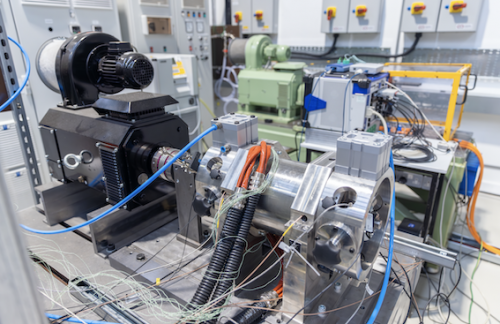University of Nottingham secures more than £70m to decarbonise future transport

More than £70m has been secured by the University of Nottingham to establish new research facilities and programmes that will decarbonise future transport.
The funding is secured based on a £14m award from the UK Research Partnership Investment Fund (UKRPIF), supplemented by additional public and private investments.
Chris Gerada, professor of electrical machines and lead for strategic research and innovation initiatives at the University of Nottingham, said: “This is one of the largest funding injections the East Midlands has ever seen, and the opportunities are clear for new research to enable the UK to take an international lead in powering transport. Today’s investment accelerates our shared vision to create world-class facilities, build strategic partnerships with industry, stimulate investments in the UK, and drive economic growth. We’re grateful to UKRPIF and our industry partners for the trust they have put in us.”
The facilities will help with the expansion of various manufacturing processes for Electrical Machines and Drives developed within UKRI’s Driving the Electric Revolution Industrialisation Centre (DER-IC).
Starting in March 2025, the university will work with industry partners to showcase the manufacturing of electrical machines and drives for various propulsion, traction, and generator applications.
Manufacturing facilities will also be open for industry co-location to speed up the introduction of new technologies to the market.
Additionally, the facilities and programs will enable the testing of powertrains, including cryogenic electrical machines and power electronics, systems powered by liquid hydrogen and other environmentally friendly fuels.
They will also provide an opportunity to establish advanced manufacturing capabilities for fast market integration of research into decarbonised transportation solutions where battery electric power is not feasible.
Professor Tom Rodden, pro-vice-chancellor for research and knowledge exchange at the University of Nottingham, said: “Building on the university’s leading capabilities in zero carbon innovation, our open-access facilities will bring together partnerships at regional, national, and international levels. We’re enabling collaboration with other higher education institutions, ensuring the highest-quality research and maximising academic, industrial and socioeconomic impact.”
The facilities and programs will be mainly located at the university’s Jubilee Campus and the university’s co-investment partners come from aerospace, power generation, marine, and off-highway industries.








